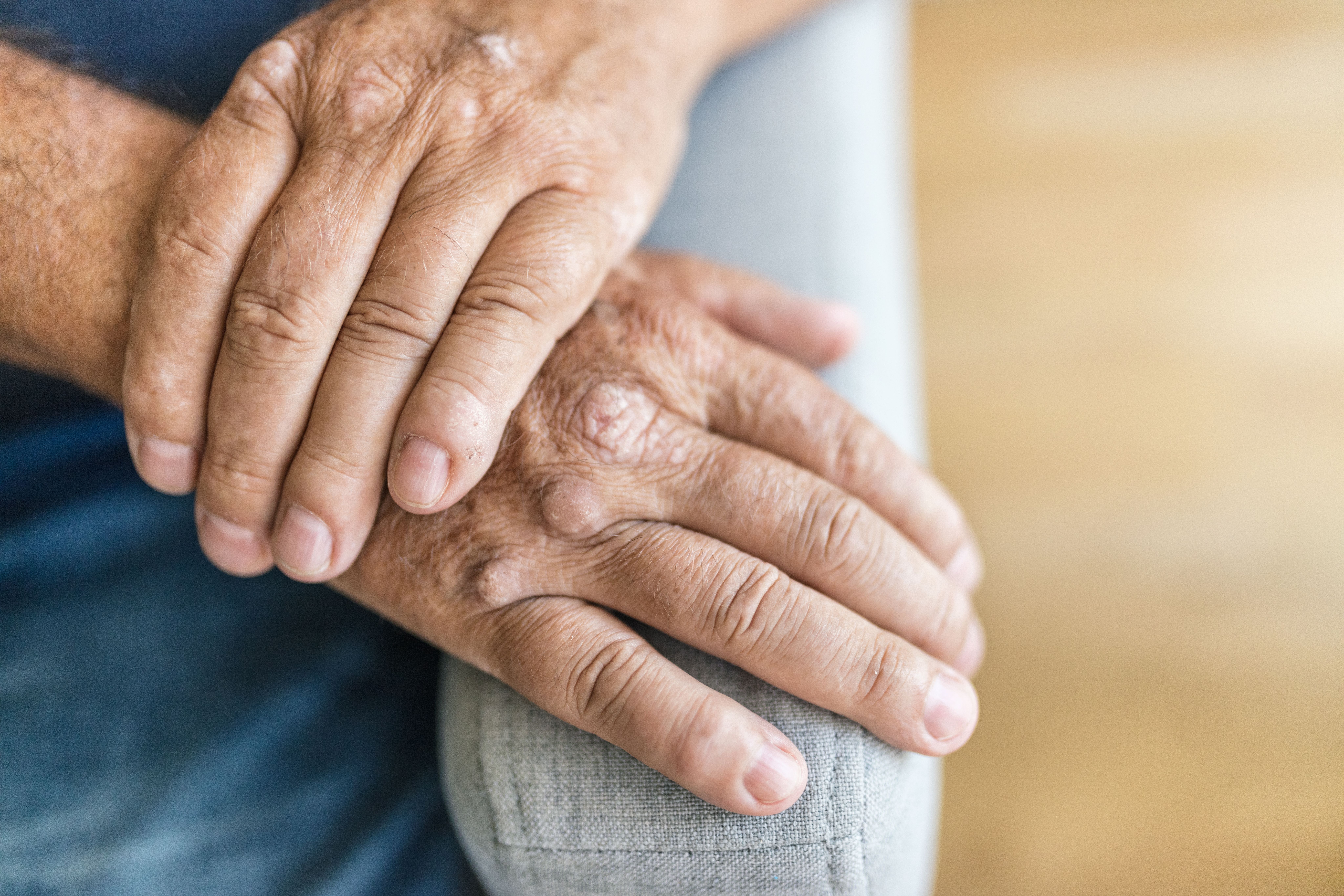- Case-Based Roundtable
- General Dermatology
- Eczema
- Chronic Hand Eczema
- Alopecia
- Aesthetics
- Vitiligo
- COVID-19
- Actinic Keratosis
- Precision Medicine and Biologics
- Rare Disease
- Wound Care
- Rosacea
- Psoriasis
- Psoriatic Arthritis
- Atopic Dermatitis
- Melasma
- NP and PA
- Skin Cancer
- Hidradenitis Suppurativa
- Drug Watch
- Pigmentary Disorders
- Acne
- Pediatric Dermatology
- Practice Management
- Prurigo Nodularis
- Buy-and-Bill
News
Article
Phase 2b/3 Trial of Izokibep Meets Primary Endpoints for Psoriatic Arthritis, According to Positive Top-line Results
Author(s):
Acelyrin announced the positive results, of which the primary endpoint was met with high statistical significance, earlier this week.
In a recent news release,1 Acelyrin, Inc. unveiled promising outcomes from its global phase 2b/3 clinical trial of izokibep, a potential breakthrough treatment for psoriatic arthritis (PsA).
Izokibep, a small protein therapeutic inhibiting IL-17A, represents a promising candidate for addressing unmet patient needs. Izokibep offers high potency, robust tissue penetration, and an extended half-life.
The randomized double-blind, placebo-controlled study enrolled 351 adult patients with active PsA across multiple sites in the United States and Europe. The trial evaluated the safety and efficacy of izokibep administered at various dosing regimens, with encouraging results supporting its potential as a novel therapeutic option for PsA patients.
The trial successfully met its primary endpoint of achieving American College of Rheumatology (ACR)50 at week 16 with high statistical significance.
Researchers observed robust clinical responses, particularly in endpoints such as ACR70, Psoriasis Area and Severity Index (PASI)100, and Minimal Disease Activity. The 160 mg weekly (QW) and every other week (Q2W) dosing arms exhibited enhanced responses compared to the 80 mg Q2W dose. Despite a higher baseline disease burden in the phase 2b/3 trial population, the magnitude of responses was notably improved.
The trial also explored pre-specified analyses focusing on enthesitis resolution, revealing promising findings. While overall enthesitis resolution did not reach statistical significance due to a high placebo response, izokibep showcased clinically meaningful resolution in patients with the highest burden of enthesitis.
Izokibep demonstrated a favorable safety profile consistent with previous experience and the IL-17A class, with no evidence of safety concerns associated with targeting IL-17A&F.
The trial reported a low study discontinuation rate of less than 3%, with mild-to-moderate injection site reactions observed. There were no instances of severe adverse events such as suicidal ideation/behavior reported.
Philip Mease, MD, MACR, director of Rheumatology Research at Swedish Medical Center, expressed optimism about the study's positive outcomes.
“These positive Phase 2b/3 data reinforce the potential demonstrated in Phase 2 for izokibep to provide meaningful benefit in treating the debilitating signs and symptoms of active psoriatic arthritis in the joints and skin, as well as enthesitis where the results in the most severe patients are encouraging and warrant further study,” Mease said in the news release.1 “We have observed from the Phase 2 46-week data that there is no safety limitation to long-term treatment with izokibep and that longer duration of therapy demonstrated the potential for even further improvements over time.”
Shao-Lee Lin, MD, PhD, founder and CEO of Acelyrin, echoed this sentiment.
“We are excited about our continued progress with izokibep in both PsA and HS,” Lin said.1 “The positive PsA study results at week 16 and the magnitude of responses give us conviction that 160 mg Q2W delivers higher clinical responses than those reported by the approved IL-17A agents, and responses comparable to those reported by the IL-17A&F agents without the associated safety liabilities. Across indications, we have observed clinically meaningful and potentially differentiated benefit from izokibep. We have consistently seen responses in high order efficacy measures such as ACR70 and PASI100 in PsA and HiSCR100 in HS that move patients toward disease resolution. This reinforces our enthusiasm for developing izokibep as an important potential new medicine for patients.”
Izokibep is currently undergoing evaluation in late-stage trials for moderate-to-severe hidradenitis suppurativa, PsA, and uveitis.2
References
- Acelyrin, Inc. announces positive top-line results from its global phase 2b/3 clinical trial of izokibep in psoriatic arthritis. News release. BioSpace. March 11, 2024. Accessed March 13, 2024. https://www.biospace.com/article/releases/acelyrin-inc-announces-positive-top-line-results-from-its-global-phase-2b-3-clinical-trial-of-izokibep-in-psoriatic-arthritis/
- Izokibep. Acelyrin, Inc. Accessed March 13, 2024. https://www.acelyrin.com/izokibep







